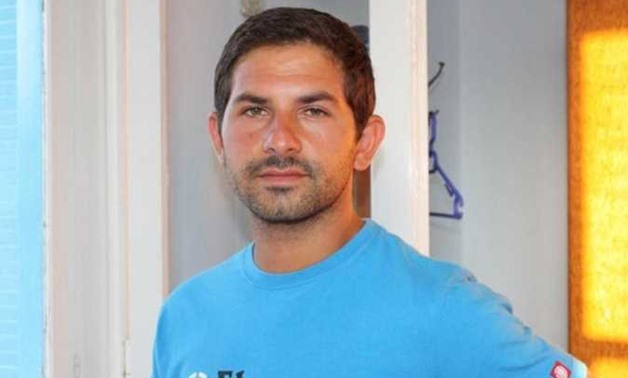
Sherif al-Gazar, an Egyptian-Greek, who donated his organs to four Chinese - Facebook
CAIRO - 29 August 2018: Sheikh Khalid al-Gendy, a member of the Supreme Council for Islamic Affairs, announced that he will be attending Sherif al-Gazar’s funeral and that he too wants to have his organs donated, after death, so that people in need may benefit.
Gazar is the young Egyptian-Greek hero who donated his heart, liver and kidneys to save the life of four Chinese patients after he slipped in the bathtub and suffered from brain herniation, sight loss and respiratory system failure, while on a business trip in China.
In a press statement on Tuesday, Sheikh Gendy said that he will attend the funeral to honor the young man and he also expressed that this is an example we should follow in the Egyptian society.
Gendy said that what this young man did makes him an Egyptian hero and that his name is a symbol of humanity.
Considering that donating organs is not ever-present in Egyptian society, the Parliament’s Health Committee is currently calling for a culture of post-mortem donation.
Ayman Abul Ela, member of the Health Affairs Committee in the House of Representatives, said that law no.5 of 2010 regulates the transplanting of human organs and the whole process of organ donation, stressing that the donation of the deceased is at their request before their death.
He emphasized that this process happens in most of the countries in the world and that organ donation is something that should be promoted in schools and universities so that people stop trading in human organs and resort to the more humane act of donating.
“In reality, this is a good start on part of the preachers and this is proof that donating organs is a very charitable act,” said Sheikh Gendy.
Organ donation after death is almost nonexistent due to lack of awareness and cultural rejection as many believe that leaving the body intact is a sign of respect to the deceased.
After Gazar’s death, the hospital’s representatives in China suggested to his sister that the family approves of donating his organs, which had already been a wish of Gazar.
Chinese TV footage showed Gazar’s sister, Farida, signing the approval after calling her mother who agreed on the phone’s loudspeaker prompting staff members at the hospital to bow down in respect of the gesture.
A religious debate was raised regarding organ transplantation as some religious edicts and fatwas prohibit organ transplantation on the ground that Islam does not allow Muslims to give up their organs by selling or donating whether during their lifetime or after death.
However, Dar Al-Iftaa (Fatwa Council) allowed organ transplants from living or dead donors in cases where they are meant to save the life of a patient at a chronic state and on a condition that such transplants are legal, and should not include any financial benefit for the donor, his family or his heirs in case the donor is deceased.
Although donating organs is done for a good cause, this is not to be confused with ‘organ theft’ in any way. There has been a recent case of organ removal without permission that did strike major controversy in Egypt.
Mohamed Abdel Tawab, who died in Kasr Al-Ainy Hospital due to a drop in blood pressure as he was awaiting cardiac catheterization, had his cornea removed without authorization.
Magdi Morshed, member of the Health Committee at the Parliament, said in an interview with “Yahdoth Fi Misr” TV show that the cornea is not an organ, and that it is a tissue. Thus, he believe that its removal without permission is not a breach of the law regulating organ transplant.
However, MP Sherin Farrag said that the hospital’s actions were illegal and that the perpetrators broke the law.
She also accused the hospital of disrespecting the body of a deceased person, as article No. 6 of the constitution stipulates that assaulting the human body or disfiguring it is a punishable crime. In addition, it is prohibited to carry out a medical or scientific experiment on someone without his written agreement, she added.

Comments
Leave a Comment